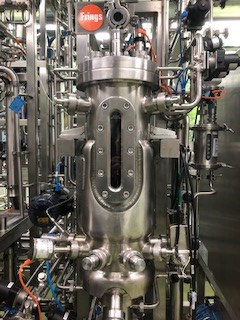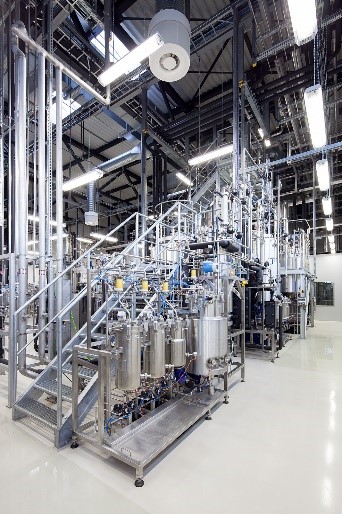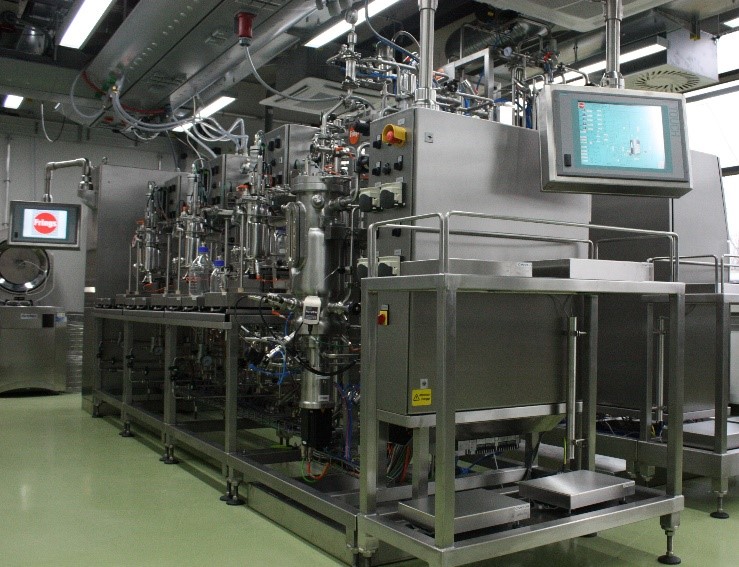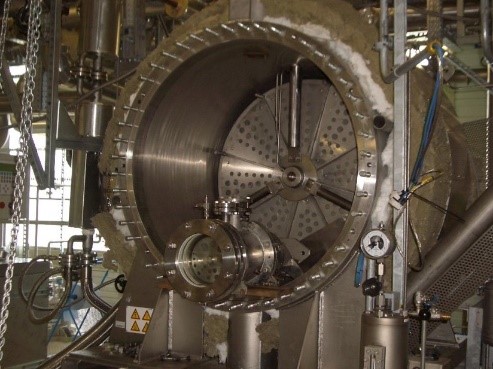Eliminating the use of fossil raw materials in the production of polymers - with a current global production of more than 350 million metric tons per year - would contribute to a significant reduction in greenhouse gas emissions. Fraunhofer approaches this problem with an innovative dual strategy. Firstly, new biobased polymer building blocks are produced via fermentation, i.e. by microbial or enzymatic processes. Secondly, the food used by the microorganisms is not scarce biomass but rather formate, which in turn is derived from climate-harmful CO2. The entire process chain is being developed, starting with the development of the microorganisms and adaptation of the fermentation process, through to the purification of the target substances, the reactor design and the energetically optimized, continuous polycondensation process.
Green plastics
More than 350 million tons of plastic are produced worldwide every year. Eliminating fossil raw materials in the production of these polymers alone would lead to a significant reduction in greenhouse gas emissions. This subproject will use the example of a C1-based value chain for the production of sustainable polycondensation products, to demonstrate the effective interaction of the competence fields of green catalysis technology, smart process technology (with a focus on continuous processes in modular design), and process intelligence (focus on sensor technology and simulation). The data obtained is incorporated into process implementation with, for example, the green metrix and the definition of sustainable standards. Electrocatalytic formate production from CO2 and biogenic residues is addressed as a CO2-neutral carbon source. This will ensure independence from fluctuating raw material availability, and demonstrate the technical feasibility of the modular technology. The monomer building blocks are synthesized via biocatalysis in novel flow reactors. The transition from batch fermentation technology to a continuous process represents a fundamentally new quality in biotechnology. The subsequent purification will be performed using parallelizable (and thus scalable) modules. According to CAROTHER's rule, purities of more than 99% must be achieved in the target products, otherwise insufficient degrees of polymerization (= mechanical properties) will be achieved in the subsequent polycondensation process. The aim of the material development is to work out basic requirements for the synthesis processes, to characterize the novel copoly(ester)amides with respect to physicochemical parameters as well as mechanical and, if necessary, optical properties, and, based on the knowledge gained, to identify the parameters of potential application fields. In the final polycondensation technology, the kinetically most advantageous laminar flow profile will be achieved much sooner in the process than is possible with conventional methods. This enables higher space/time yields, while at the same time improving the energy efficiency of the overall process. Another focus is the design of the finisher in terms of its mixing elements, with the aim of carrying out polycondensation as exclusively as possible in the melt. In this case, the energetically unfavorable solid state technology can be avoided - at least for the majority of products.
 Fraunhofer lighthouse project »ShaPID« – Shaping the Future of Green Chemistry by Process Intensification and Digitalization
Fraunhofer lighthouse project »ShaPID« – Shaping the Future of Green Chemistry by Process Intensification and Digitalization




